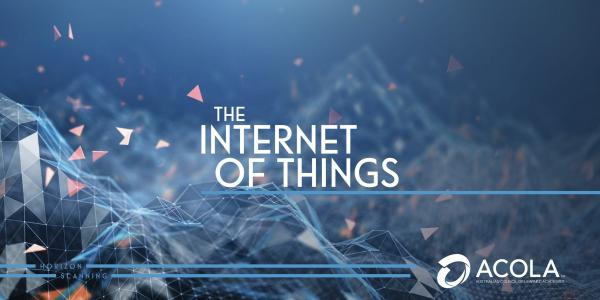‘Moment in time’ to capture benefits of Internet of Things
Australia has a moment in time to capture the benefits of the booming “Internet of Things”, a new report from the Australian Council of Learned Academies has found.
The Internet of Things is the name given to the ever growing list of smart devices – devices connected to the internet and harnessing artificial intelligence, which are increasingly used not only in homes but also in the management of cities, including office buildings and transport networks, and in industry.
The report was commissioned by Australia’s Chief Scientist for the National Science and Technology Council and released on November 4.
It estimates that Australian homes will contain more than 47 million smart devices by 2022.
It paints a picture of a home “IoT platform” that anticipates and meets the needs of occupants, running home security, monitoring home health and coordinating household devices. The platform could monitor sleep patterns of individual occupants, deciding when to wake them based on the day’s weather and traffic conditions and opening blinds. It could make decisions about when to switch lights on and off and activate other appliances, deciding the best time to run the washing machine or dishwasher to save on electricity costs.
Outside the home, healthcare could be a significant beneficiary of the ability of devices to monitor health and especially chronic diseases, sharing data with doctors in real time. During the pandemic, smart wearables, such as smart thermometers and pulse oximeters, were used to monitor patients at home.
In cities, connectivity and data analytics enable real-time monitoring of traffic congestion, pollution, public safety, waste collection and infrastructure for maintenance.
On the farm, agricultural sensors can monitor soil, crops and animals, increasing farm efficiency, and be incorporated into supply chains. In disasters, sensors, drones and artificial intelligence-driven analytics can improve hazard management, fire-fighting and escape routes.
The Internet of Things is, in short, a gigantic network of connected ‘things’ managed by smart technology, and as the report notes, the breadth of potential uses is yet to be fully realised. It can make our lives easier, cheaper and more reliable, with its power lying in the volume and granularity of data collected.
The report also emphasises the need to consider privacy, security and other impacts, given the multiple new access points for hacking that are created by connected devices.
“As devices become more pervasive and knowing, with the ability to collect data and make decisions on our behalf, it will be important to consider the wider context of their use. Their inclusion and use in public spaces, business and our homes necessitates discussion on the social, ethical and environmental impacts,” the report says.
“Government, industry and community each have a role to ensure that the IoT is used effectively and responsibly to maximise benefits for Australia, while mitigating potential harms or unintended impacts. This will relate primarily to managing technical capabilities, the use and ownership of data, security and equality of access.”
Among key findings, it suggests Australia could consider a national approach on expected regulations, standards and connectivity, and future research and investment priorities.
Australia could also develop national standards to ensure appropriate use of data, and should be proactive in its approach to security.
Professor Bronwyn Fox, Deputy Vice Chancellor at Swinburne University of Technology, chaired the expert working group, and authored the report along with five others.
Australia has a moment in time to capture the benefits, she says.
“The IoT will create economic impact for Australia, present novel opportunities for the ways we live and conduct business, and provide solutions to societal issues such as environmental disasters and pandemic management,” she said. “The applicability of the IoT across all sectors is enormous.”
Dr Finkel said the Internet of Things could be useful to track and demonstrate sustainability in supply chains, such as low emissions products, and will help assist industry to create a greater trust in data.
“Reflecting on the challenges of 2020, IoT could help us monitor environmental disasters, support pandemic management and enhance the delivery of services to regional and remote populations,” he said.
The Internet of Things report, released on November 4, is the sixth in the Horizon Scanning series. The others consider the future of energy storage, precision medicine, synthetic biology, artificial intelligence, and agricultural technologies.

